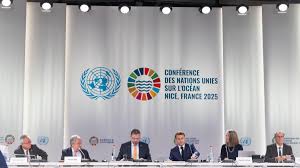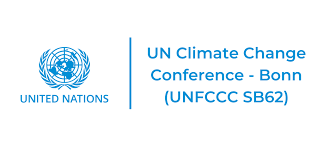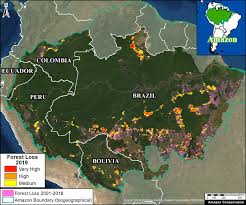The Ocean's Last Stand: UN Conference Races to Turn High Seas Treaty into Action
Editor
Jun 20, 2025
min read
3 views

In a critical test of the world's commitment to marine conservation, delegates from across the globe are convening for the 2025 UN Ocean Conference. This summit carries unprecedented weight, being the first major gathering since the historic adoption of the Biodiversity Beyond National Jurisdiction (BBNJ) Agreement, commonly known as the High Seas Treaty. The central challenge now is to transform the landmark legal framework from paper promises into tangible action, a task made all the more urgent by the escalating threats of climate change, pollution, and overfishing that are pushing marine ecosystems to the brink of collapse.
The High Seas Treaty, adopted in 2023 after nearly two decades of negotiations, was hailed as a monumental achievement for ocean governance. It provides, for the first time, a legal mechanism to establish marine protected areas (MPAs) in the high seas – the vast stretches of ocean that lie beyond national borders, covering nearly two-thirds of the ocean's surface. These areas have long been a 'wild west' of unregulated exploitation, leaving invaluable biodiversity hotspots vulnerable to destruction. The treaty also mandates environmental impact assessments for activities like deep-sea mining and establishes a framework for the fair and equitable sharing of marine genetic resources. The 2025 conference is the first major opportunity for nations to put forward concrete proposals for high seas MPAs and to begin the vital work of operationalizing the treaty's provisions.
The scientific imperative for action is undeniable. Recent studies have painted a grim picture of the state of our oceans. Ocean temperatures are reaching record highs, leading to mass coral bleaching events and forcing marine species to migrate to cooler waters. Plastic pollution continues to accumulate at an alarming rate, choking marine life and entering the human food chain. Industrial overfishing has decimated fish populations, threatening the food security and livelihoods of millions of people. The conference will feature presentations from leading marine scientists, who will undoubtedly underscore the need for immediate and ambitious action to reverse these devastating trends.
However, the path from treaty adoption to effective implementation is fraught with challenges. One of the biggest hurdles is the ratification and entry into force of the High Seas Treaty itself. While many nations have signed the treaty, a sufficient number must also ratify it through their national legislative processes for it to become legally binding. The UN conference will be a key moment to build political momentum and to encourage more countries to complete the ratification process. Another significant challenge is finance. Establishing and managing a global network of MPAs, conducting environmental impact assessments, and supporting developing countries in their conservation efforts will require substantial financial resources. The conference will see discussions on innovative financing mechanisms, including public-private partnerships and the potential for a 'blue fund' to support ocean conservation.
The issue of deep-sea mining is also expected to be a major point of contention. A growing number of companies and countries are eager to exploit the vast mineral resources of the deep seabed, but scientists have warned that this could have catastrophic and irreversible consequences for fragile deep-sea ecosystems. The High Seas Treaty provides a framework for managing this emerging industry, but there is a deep division between those who advocate for a moratorium on deep-sea mining and those who see it as essential for the green transition. The conference will likely see a heated debate on this issue, with the future of the deep ocean hanging in the balance.
Despite these challenges, there are also grounds for optimism. The very existence of the High Seas Treaty is a testament to the power of multilateralism and a growing global awareness of the importance of ocean health. The conference will also showcase the innovative solutions and local initiatives that are already making a difference, from community-led marine conservation projects to the development of new technologies to combat pollution and illegal fishing. The role of indigenous peoples and local communities, who are often the most effective stewards of marine resources, will also be a key theme of the conference.
Ultimately, the 2025 UN Ocean Conference is a moment of truth. It will test the international community's resolve to move beyond rhetoric and to take the bold, collective action needed to save our oceans. The decisions taken at this conference will have a profound impact on the future of our planet, determining whether we can secure a healthy, resilient, and productive ocean for generations to come, or whether we will allow this vital life support system to slip through our fingers. The world is watching, and the ocean cannot wait.
Editor
League Manager Editorial Team





Leave a Comment